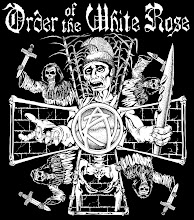However, many of my friends who are teachers in Hawaii have warned me about the educational system. I’ve heard complaints of low-pay, the stupidity of the “No Child Left Behind” act and the high cost of living. I often wonder if I’ll be able to pay off my student loans if I become a High School teacher and pursue this career. I’ve seen brilliant people come to Maui and teach for a couple of years only to become disheartened and move back to the Continental U.S.
There is a prevailing negative opinion about the school system in Hawaii, in fact, on City-Data.com website, “aha33456” wrote;
“I would not consider raising my children in Hawaii… The public school system is awful…the problem isn't the price of the private education - it's what they don't learn growing up and living there…it is the worst place in the country to raise children if you want them to cope and succeed in the real world.”
What is this so-called “real world?” Who defines it and what makes a place other than Hawaii more “real? Almost every time Hawaii is referenced, it is described as being some place “other” than what is normal. According to this logic, every person in Hawaii is a backwards person, incapable of coping with the rest of the world. This is nothing short of social-Darwinism. I don’t believe that it is necessarily race-based, although there is a strong element contained within the argument. Perhaps the time-seasoned maxim, “Hawaiians died off because of disease brought by European contact,” portrays the Hawaiian people as somehow weaker. The website “Deeper Hawaii,” states, “…Because of European contact, contagious diseases such as cholera, measles and gonorrhea, decimated the Hawaiian population…” Of course, this is repeated over and over like a mantra. When Indigenous Cultures are consistently told that they are somehow not able to withstand disease over and over, it has been argued that they start to believe that perhaps they are somehow weaker. Never mind that this historical perspective is the fact that the Europeans were absolutely filthy –they were the carriers of disease.
What does all this have to do with education? In my opinion, a lot. Many of the books in the Canon taught in high school English classes are colonialist in nature. Arthur Conan Doyle’s, “The Lost World,” Kipling’s “The Jungle Book” and Jack London’s “The House of Pride, and Other Tales of Hawaii” can be found on High School English book lists. All three authors are amazing writers, but not above criticism and critical thought. Perhaps they continue to perpetuate and reinforce the myths of Colonial/Imperial power and intervention as somehow inevitable. “The Lost World” tells of an ancient world, waiting to be discovered. “The Jungle Book” contains stories written in the perspective of a colonialist. Jack London’s version of Ko`olau the Leper” is refuted by Ko`olau’s wife in the book, “The True Story of Kaluaikoolau as told by his wife, Piilani.” Just because these books are found in the Canon of High School English departments, doesn’t necessarily make them true, nor do they give voice to the people they are depicting. The characters are always described from the “outside-in.”

Education in Hawaii should be one of our top priorities. Although English departments are often seen as a bastion of liberal thought (How dare we criticize the great authors and put dirty liberal thoughts into children’s minds!) and find their budgets decimated, literature and liberal arts go beyond facts and figures. The best types of literature is where the binary of black and white is eschewed for the grey areas, the areas where everything isn’t wrapped up, nice and neat. The grey area teaches us to think for ourselves. Perhaps this is what is found to be so frightening to some. Nevertheless, educators in Hawaii have the unique opportunity to not only celebrate the local and various cultures, but to also teach our children about the huge world that seems so far away. (Although, it could be argued that with television and the internet, the world isn’t as far away as we think).

“Aha33456” may believe that Hawaii is the worst place to raise children and statistically, the educational system may be far behind that of the states found on the continent. But, that is not an excuse to throw our collective arms up in despair. We should be challenged enough to want to make our educational system better. We don’t really need to rely on schools to teach and raise our children. That is our job. I believe that my children can cope in any society that they were placed in because it is my duty as a father to teach them to do so. In fact, what our children learn is up to us.
City-Data
Deep Hawaii
Kipling (look at the symbol on page seven)
Jungle Book Soundtrack (Not my link).
"Social Darwinism is a belief, popular in the late Victorian era in England, America, and elsewhere, which states that the strongest or fittest should survive and flourish in society, while the weak and unfit should be allowed to die. The theory was chiefly expounded by Herbert Spencer, whose ethical philosophies always held an elitist view and received a boost from the application of Darwinian ideas such as adaptation and natural selection" -Think Quest

No comments:
Post a Comment